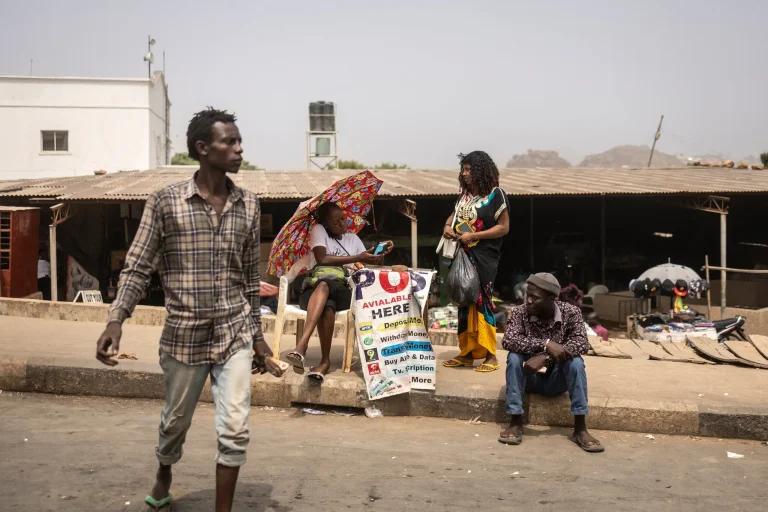🎧 Listen to This Article
Long known as the land of opportunity, America may soon be the most expensive place in the developed world to send money home.
Buried deep in President Donald Trump’s sprawling “One Big, Beautiful Bill” is a provision that has gone largely unnoticed outside immigration and development circles but could have outsized consequences for some of the world’s most vulnerable populations. The legislation would impose a 3.5% federal tax on all outbound remittances if passed. For millions of African families who rely on the diaspora to make ends meet, it could be catastrophic.
For countries across sub-Saharan Africa, remittances are more than just spare cash; they are economic lifelines that are often more reliable and less politicized than foreign aid. In Liberia, Senegal, Gambia, and Nigeria, remittances rival or exceed what these countries receive in official development assistance. Unlike donor funds, they arrive quickly and directly and are typically spent on food, housing, school fees, and medicine.
In 2024 alone, African countries received nearly $10bn in remittances from the United States, almost as much as they once received in U.S. foreign aid before President Trump gutted funding to the Agency for International Development. That source, too, is now under threat.
A blow to the diaspora and to the continent
The tax, ostensibly designed to discourage immigration and “self-deport” low-income migrants by reducing financial incentives, comes atop existing remittance fees that already make the U.S. among the most expensive G7 countries for sending money abroad. Add bank charges and currency conversion, and immigrants could soon pay close to 10% on every dollar they send home.
Critics, including economists and diaspora leaders, call it double taxation. “People are already taxed when they earn this money. This proposal taxes them again simply for helping their families survive,” said Helen Dempster of the Center for Global Development.
The consequences will be felt most sharply in West Africa. Nigeria, Africa’s largest economy, stands to lose an estimated $215 million annually. In relative terms, the damage is even worse for smaller nations like Gambia and Liberia, where remittances make up roughly a quarter of GDP. Senegal, ranked by the World Bank as the most remittance-dependent country on the continent, will also feel the pinch.
The impact would be swift and painful for families like that of Helena Saykiamien, a 75-year-old widow in Monrovia. She uses the $200 her daughter wires each month from Delaware to feed eight children, buy medicine, and operate a small water-chilling business in a power-starved neighborhood. “They want us to suffer,” she says quietly, seated beside her donated refrigerator.
A risky bet on migration deterrence
The Trump administration argues that the tax will deter new migrants and push those already in the U.S. to return to their home countries. However, economists warn that the opposite may occur. “When remittances dry up, desperation rises,” says Amma Gyampo, a Ghanaian entrepreneur and philanthropic adviser. “Economic hardship doesn’t reduce migration. It fuels it.”
Studies show that when households lose access to diaspora support, they are more likely to take drastic measures, including illegal migration, in search of opportunity.
The bill also risks increasing informal money transfer channels, from cash-laden couriers to unregulated cryptocurrency transactions, which are hardly a win for financial transparency or security.
A new front in America’s disengagement from Africa
For many Africans, the message is clear: America is retreating. First came the aid cuts, then the erosion of trade preferences, and now a tax on private remittances. All under the banner of “America First.”
The irony is bitter in countries like Liberia, which owes its existence to the United States. Founded in 1847 by formerly enslaved Americans, it still flies a flag like the Stars and Stripes. “We were taken there in chains,” says Mrs. Saykiamien. “Now they want to punish us again.”
This isn’t just about money. It’s about trust. U.S. soft power in Africa has long depended not only on embassies and envoys but on a global image of generosity, openness, and economic opportunity. That image is fraying.
As the United Nations pushes for a global average remittance fee of under 3% by 2030, the United States is proposing to move in the opposite direction. The world’s largest economy may soon be taxing generosity, not rewarding it.
For further details, clarification, contributions, or any concerns regarding this article, please get in touch with us at editorial@tax.news. We value your feedback and are committed to providing accurate and timely information. Please note that our privacy policy will handle all inquiries.



